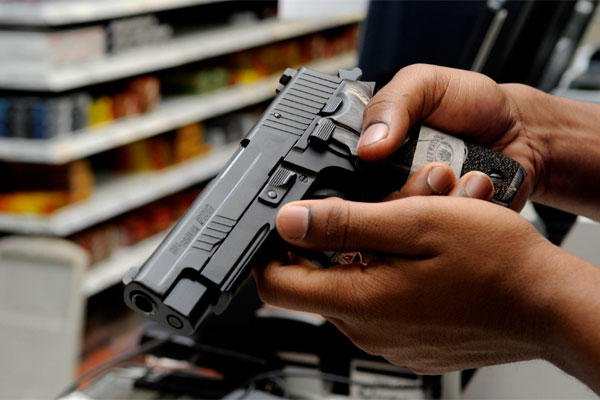The Fort Hood shootings put a spotlight on how the military deals with at-risk soldiers who have privately-owned weapons and bring them on base.
By law and military regulation, base commanders were barred from asking Spec. Ivan Lopez about the .45 caliber automatic pistol he owned even though he was under treatment for a variety of mental health issues, Army and Pentagon officials said.
Commanders could ask about the weapon and possibly take steps to secure it only if Lopez had been judged by a mental health professional to be a risk to himself or others, the officials said.
At a Senate hearing, Army Secretary John McHugh said that Lopez, who was taking multiple prescription drugs and sleep aids for anxiety and depression, had recently seen a military psychiatrist who said he was not a risk.
"He was fully examined. And as of this morning, we had no indication on the record of that examination that there was any sign of likely violence, either to himself or to others. No suicidal ideation," McHugh told Congress.
Lopez also "had a clean record" in the military, and background checks showed "no involvement with extremist organizations of any kind," McHugh said.
Sen. Lindsey Graham, R-S.C., suggested to McHugh and Army Chief of Staff Gen. Ray Odierno that it was time to revisit the ban from soldiers carrying personal weapons on base. Odierno disagreed saying the protection from security guards and military policemen was suitable.
Lt. Gen. Mark Milley, Fort Hood's base commander, said Lopez may have been involved in an argument with another soldier shortly before the shooting began at about 4:10 p.m. CDT Wednesday.
"There's a strong possibility that that in fact immediately preceded the shooting," Milley said.
The .45 caliber Smith & Wesson allegedly used by Lopez to kill the three soldiers, wound 16 others, and then kill himself was not registered with the base as required, Milley said.
"We try to do everything we can to encourage soldiers to register their personal weapons, even when they live off post. We are not legally able to compel them to register weapons when they reside off post," McHugh said in his testimony.
Commanders have been arguing for years for more authority to intervene in cases where mentally-troubled troops have access to personal weapons in an effort to curb the suicide rate that spiked in the wars in Iraq and Afghanistan. About half of the suicides in the military involve personal weapons, according to Defense Department statistics.
When Gen. Peter Chiarelli was the Army's vice chief of staff in 2011, he was stunned to learn that Congress had passed an amendment to the National Defense Authorization Act that effectively barred commanders from asking potentially suicidal troops if they owned weapons.
Under the law, which was backed by the National Rifle Association, "I am not allowed to ask a soldier who lives off post what that soldier has in the way of privately owned weapons," Chiarelli said at the time at a suicide prevention forum.
"If a person wants to commit suicide, it's really difficult to stop," Chiarelli said. "When you can separate the individual from the weapon you can lower the instance of suicide," he said.
The law was changed in the NDAA for Fiscal 2013 to allow military mental health professionals to ask patients if they own weapons and then pass that information to commanders if the patient is considered "at risk," said Army Col. Steve Warren, a Pentagon spokesman.
Under those conditions, commanders can ask about personal weapons, "but there are real legal limits on what commanders can do" depending on the laws of the state in which the base is located, Warren said.
-- Richard Sisk can be reached at richard.sisk@monster.com































